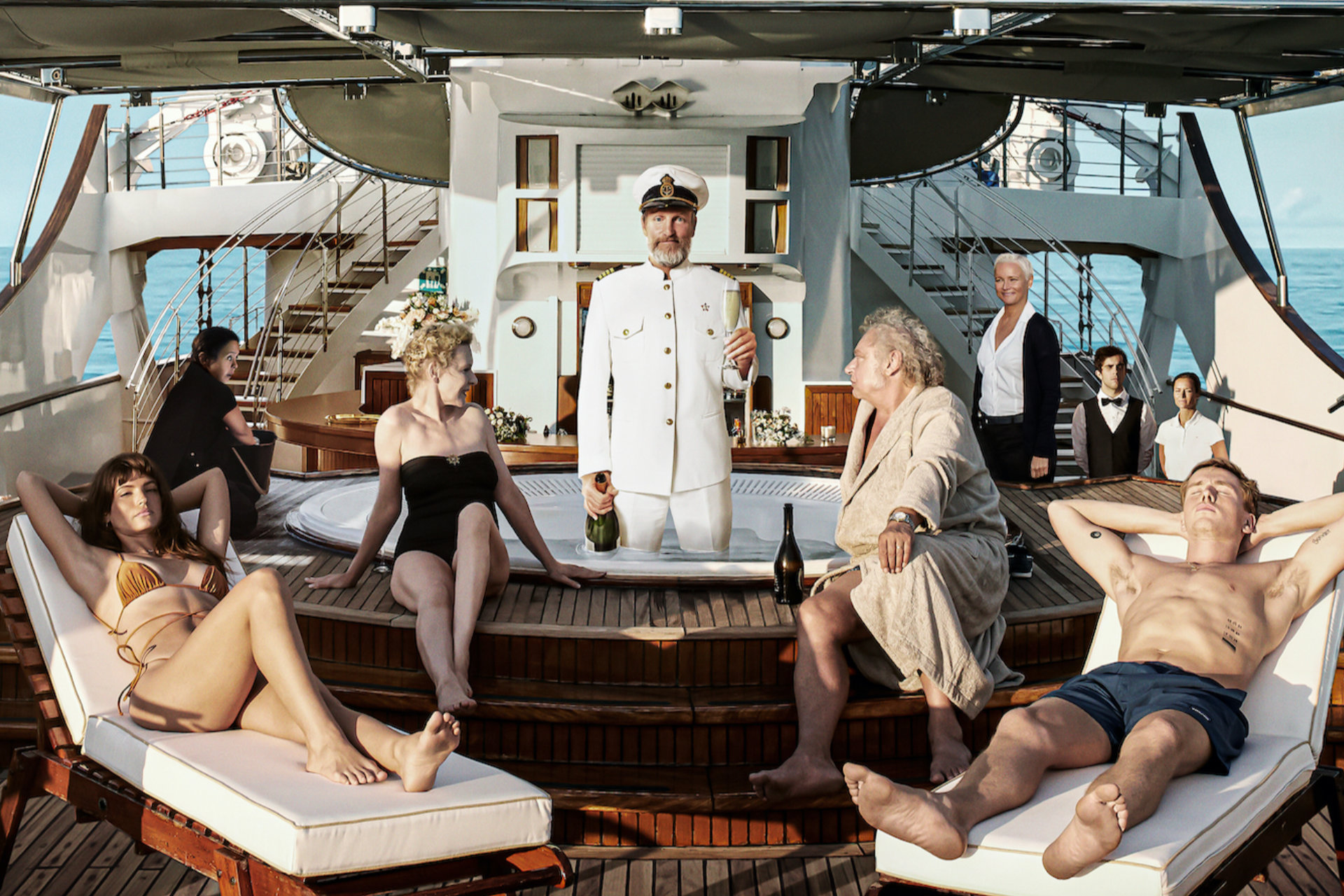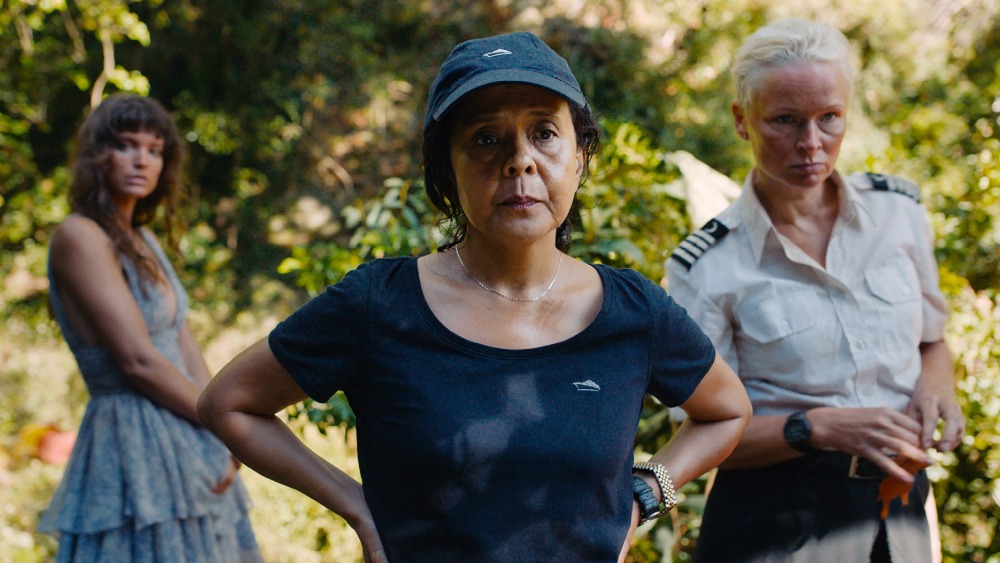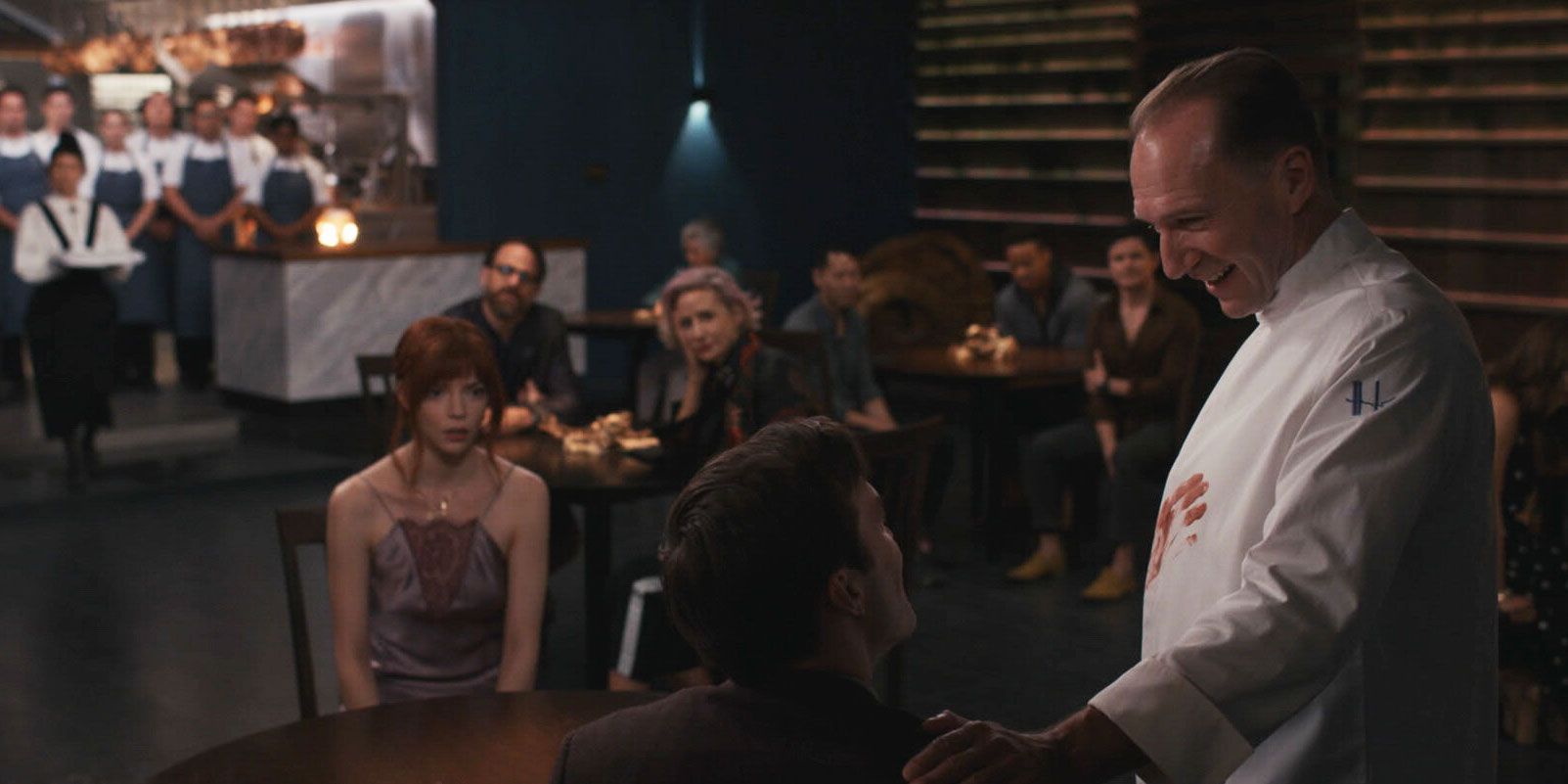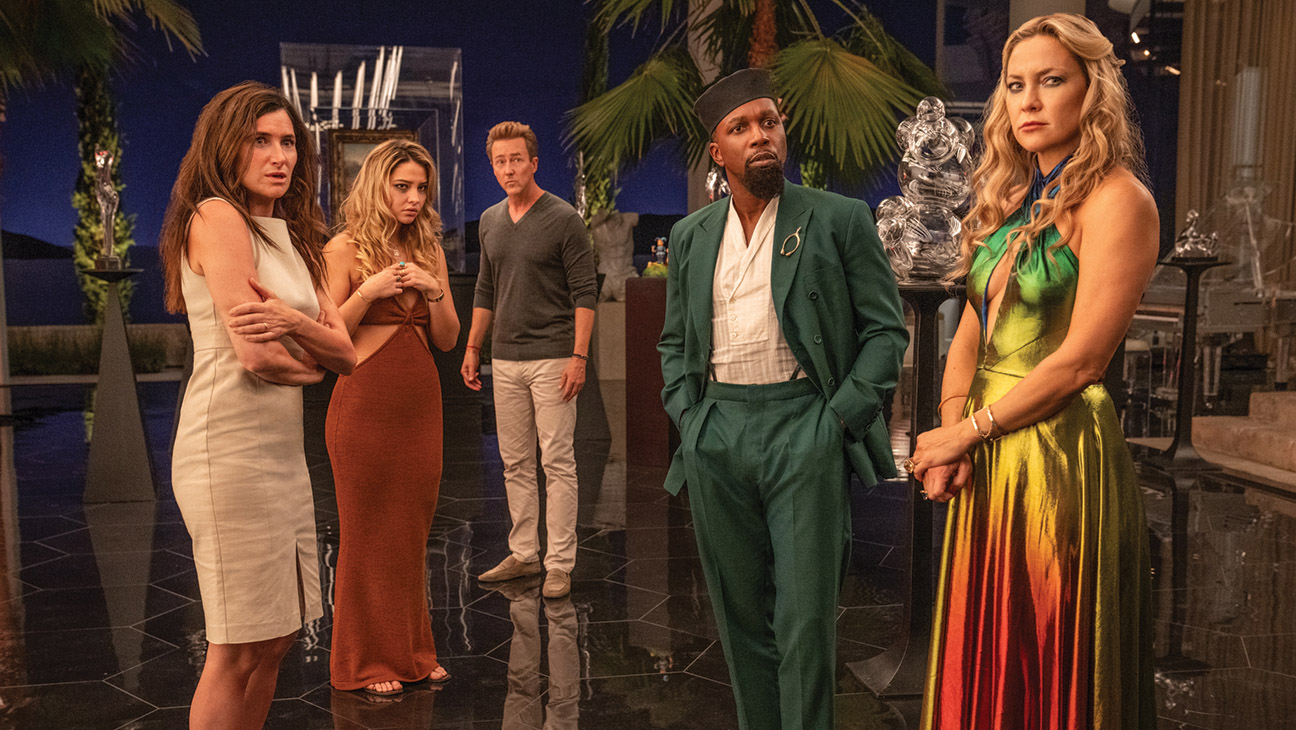
The breakdown of class and wealth has been the central theme of several recent feature films. Each movie uses different tools such as comedy, satire, and mystery to convey its message that the rich are absurd and that the class system, money, and power have no bearing on a person’s worth. Each movie aims to go back to the fundamentals of the human experience.
Triangle of Sadness

Hilariously and cruelly witty, Triangle of Sadness comments on what happens when the table is shifted and the rich are no longer in control. The first half of the movie encompasses the absurdity of the requests and personas of the guests on a luxury cruise, but most importantly it explores the relationship between the Captain (Woody Harrelson), a communist American, and Dimitry (Zlatko Burić), a Russian capitalist. The phrase wanting what you can’t have has never been truer. The second half of the movie follows some of the crew members and guests when they find themselves stranded on an island. The beautiful and rich have no survival skills, and they have to rely on the cleaning lady, Dolly De Leons’ Abigail. The person who once cleaned their toilets now rules their world with an iron mop handle.
The Menu

The Menu explores the absurdity of celebrities, foodies, food critics, and the rich. A group of people pay thousands for an exclusive meal with the renowned Chef Slowik (Ralph Fiennes). Each person is not only ludicrous for paying thousands of dollars for tiny plates of food but each character faces their own distinct array of issues. My personal favorite is a renowned food critic who can close down restaurants with one keystroke and also describes food with words such as “thalassic”, a term which google informs me means “oceanic.” Even her assistant did not know this interesting word to use the next time you’re served scallops at a dinner party. The most absurd is Chef Slowik himself, a brilliant artist who is driven into madness by a world that does not appreciate simple things like cheeseburgers but favors extravagant over-the-top entrees such as thalassic scallops. Among all these people we find Margot (Anya Taylor-Joy), a person who at first may seem out of place, yet who we discover is the one who has owned her freedom.
Glass Onion

As the name suggests, just like an onion the movie slowly reveals each increasingly absurd layer. The murder mystery is rooted in not only uncovering these layers but also in revealing how each character is living off the scraps the so-called “genius,” Miles (Edward Norton), gives them. Miles feels entitled to his success. He truly believes he is a genius and attributes his success to his own brilliant ideas. We slowly discover, however, that he has never had any original idea—not the innovation that made him wealthy, not even the clever invitations he sent to his “friends” that jumpstart the plot. The absurdity of the wealthy is not only the unnecessary extravagant things they buy but also how they attribute their success to their own intelligence without giving credit to those that deserve it.
 Laura Sainz is a first-year student at FIU. She enjoys the small things in life with her favorites being rom coms and sunsets. She also loves reading but has a bad habit of reading 10 different books at the same time.
Laura Sainz is a first-year student at FIU. She enjoys the small things in life with her favorites being rom coms and sunsets. She also loves reading but has a bad habit of reading 10 different books at the same time.
